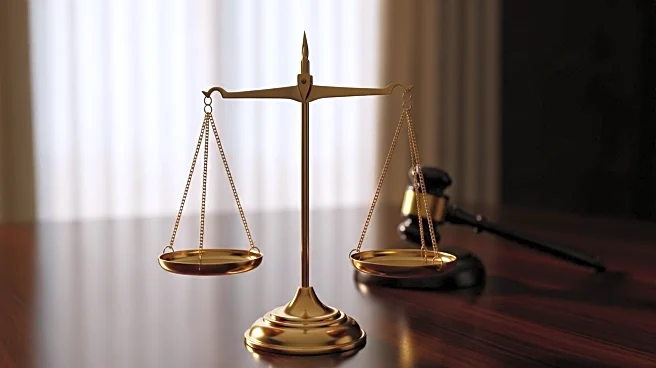What is the story about?
What's Happening?
Supreme Court Justice Amy Coney Barrett has released a new book titled 'Listening to the Law,' where she reflects on her journey to the Supreme Court and her approach to constitutional interpretation. In an interview, Barrett emphasized her independence, stating, 'I'm nobody's justice,' including President Trump, who nominated her. Despite initial expectations from both supporters and critics that she would consistently align with Trump's views, Barrett has occasionally served as a swing vote on the conservative court. Her stance has surprised some analysts and disappointed members of Trump's base, who expected her to be a reliable conservative vote. Barrett's book aims to persuade the public that Supreme Court decisions are not based on personal or political preferences.
Why It's Important?
Justice Barrett's assertion of independence is significant as it challenges the perception that Supreme Court justices are beholden to the presidents who appoint them. Her role as a swing vote on a conservative court highlights the complexity of judicial decision-making and underscores the importance of judicial independence. This development may influence public trust in the judiciary, which has been perceived as ideologically driven according to recent polls. Barrett's approach could impact future court decisions, particularly those involving executive power and presidential policies, affecting the balance of power among the branches of government.
What's Next?
Justice Barrett's continued presence on the Supreme Court as a potentially independent voice may lead to unpredictable outcomes in future cases, especially those involving contentious issues. Her book and public statements may spark discussions about the role of personal experiences in judicial decision-making and the expectations of justices' independence. Stakeholders, including political leaders and legal analysts, will likely monitor Barrett's decisions closely to assess her influence on the court's direction.
Beyond the Headlines
Barrett's position as the first mother of school-age children on the Supreme Court introduces unique perspectives on cases involving family and education. Her personal experiences, such as parenting a child with special needs, may inform her understanding of related legal issues, potentially affecting rulings on education and disability rights. This aspect of her identity could contribute to broader discussions on diversity and representation within the judiciary.
















